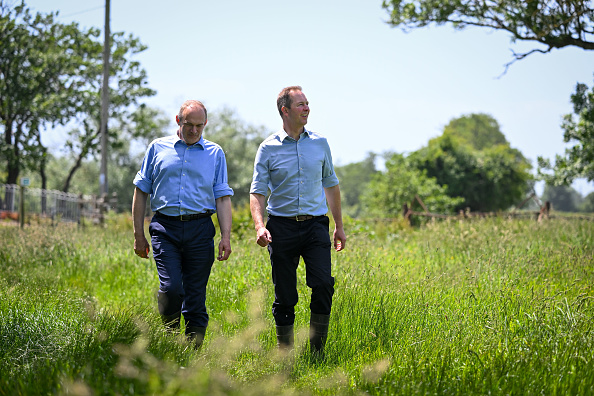As the Tories fight on both political flanks, they need to ditch policy-by-stereotype

TODAY’s by-elections risks exposing the government on both political flanks. A loss in Wakefield, in West Yorkshire, would dent their working class 2019 gains, and a defeat in Tiverton & Honiton, in rural Devon, would strike deep into their southern heartlands. Losses on both these fronts in the next general election could be the recipe for a Labour majority.
The political trap is a knee jerk response on each side, guided by ill-defined ideas of a distinct Red Wall and Blue Wall.
The term Red Wall referred to something specific. It identified a set of seats that demographically should vote Tory based on characteristics like homeownership, age, and education level, but didn’t because of what pollsters call “hygiene factors” – essentially a toxic brand. Brexit and Corbyn removed the stigma from voting Conservative, and dozens of seats across the north changed hands at one time. The Red Wall fell, and now these seats act like those elsewhere in the country.
By contrast, the Blue Wall does not refer to something real. Onward research earlier this year found no set of seats in the South that look like Labour or Lib Dem seats in terms of their demographics that might suddenly switch in one election. We did, however, identify a “Blue Drift” – the slow decline of Conservative vote share across the home counties over the past couple of decades.
Why does this matter for today’s results? After all, by-elections are famously unreliable indicators of national races, and the airwaves will inevitably be full of politicians downplaying or overinterpreting results to suit their narratives.
This matters because if there is no Blue Wall, and the Red Wall has already fallen, then an electoral strategy based on defending or gaining either of them is a fantasy. The biggest risk for the Conservatives would be to try to “defend” both flanks with differing sets of policies – playing up the culture war to appeal to Northern seats or watering down ambitions on housing to appeal to the South.
That’s not to say there won’t be important issues locally. The frustrations of farmers at post-Brexit agriculture subsidies will play a role in seats like Tiverton & Honiton for as long as these problems rumble on. And seats like Wakefield in the North that contain smaller towns outside of larger urban areas will continue to feel left behind when bus services are underfunded or cancelled.
But at the next election, any party looking to form a government will need to adopt a national programme that can appeal to both Wakefield and Tiverton & Honiton. Polls consistently show that the key issues concerning voters today are the cost of living crisis (number one by a margin) and then the economy and the NHS – wherever they live. The government needs to focus on the fundamentals rather than chasing caricatures.
This means a relentless emphasis on competent leadership and aspirational politics. Passport queues and GP waiting lists need to be tackled. Economic growth needs to be, if not forced up, then its decline slowed; crime needs to be wrestled down. This sort of programme has been at the core of “one nation” governments in the past, and has been at the heart of the Prime Minister’s promises to unite and level up the country.
Thus far, the rhetoric has failed to match the reality. These by-elections were self-inflicted wounds, triggered by scandal among sitting MPs. Responding to their loss by pandering to stereotypes that have lost their political relevance would be another avoidable mistake.